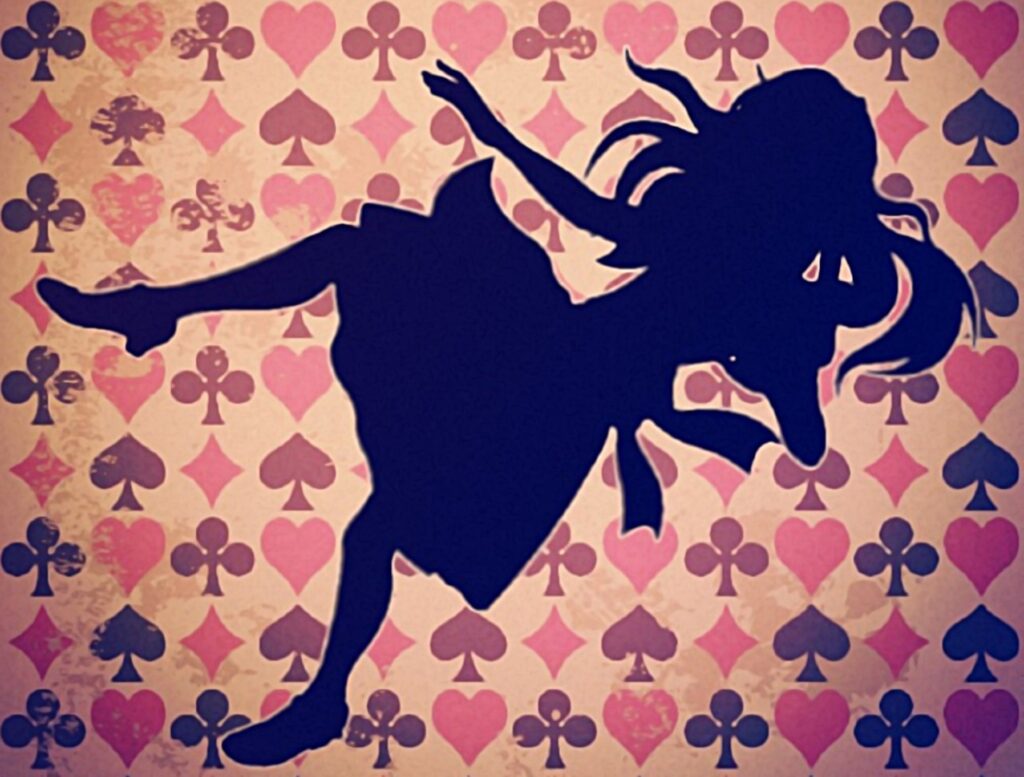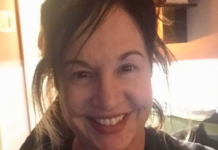I’ve tried to sit down and write something for Mad In America for a couple of years now, because there seem to be few writings or material from loved ones on how to navigate psychiatric medication withdrawal while maintaining relationships. My wife, J.A. Carter-Winward, had her article “The Agonizing Nightmare of Drug-Induced Akathisia” published here on MIA over four years ago. I know that J.A. and I are a very fortunate minority who have so far managed to survive a decade and a half through this process. Unfortunately, there is no way to distill fifteen years of experience and learning into one article. Over that time, I’ve also learned that the physiological responses to these powerful drugs impact everyone differently, so just simply recounting what we did and do to survive would ultimately be insufficient.
Instead, I wanted to use this story to introduce myself, give some background information, and address the narrative shift that has taken place over the last fifteen years. My hope is that in subsequent articles, I can expand on various approaches we found helpful and others that, for us, weren’t as helpful.

We began this journey 15 years ago, and every day of our lives is still impacted by these pills. Withdrawal symptoms and strategies on how best to address the myriad of challenges they bring are just part of our everyday lives. Yet we finally both feel emotionally removed enough for me to at least begin writing about these experiences in the hope of helping others.
One pill makes you larger
And one pill makes you small
And the ones that mother gives you
Don’t do anything at all…
—Jefferson Airplane, White Rabbit
Grace Slick’s vocals capture the kaleidoscopic and nightmarish Wonderland of psychiatric drugs—one pill to sedate you, one pill to accelerate you, and others that (seemingly) don’t do anything at all. I was too young to fully appreciate Jefferson Airplane when the song came out, but in a strangely peripheral way, our lives were upended by a neuropsychologist who just happened to have hung out with Grace Slick in 1960s San Francisco when he was a grad student.
I first met J.A. at a book signing. She was the author and I was one of the throng of (mostly) men there to hear her read. Fortunately, someone snapped a photo of us talking, immortalizing the moment we met. We began dating, and as it got more serious, I remember one evening at J.A.’s house when she approached me with trepidation and rather matter-of-factly disclosed that she had been diagnosed with bipolar disorder and she was on medications. I remember how fearful she was when she told me, but for me, it barely registered as a problem. I knew this brilliant, beautiful, funny, talented woman and she wasn’t unstable or impaired in any way I could fathom. Considering the ideal in my mind of who I wanted to marry, her diagnosis didn’t bother me, and marrying her was the best decision I’ve ever made. But in regard to the medical system’s medications, and their impact on our lives, I couldn’t have been more naive.
I was a regular participant with J.A. in her therapy appointments even before we got married. I did my best to learn the symptoms of the “illness.” This diagnosis was simply one additional problem of many we had to address as a couple as we began to blend our lives. Every incident that happened was seen by both of us through the lens of the label: bipolar disorder.
Three or four years into our marriage, J.A. again approached me with trepidation. “I need to tell you something,” she said. She handed me a sheet of paper with a poem, eponymously entitled, i need to tell you something. Here are the last few stanzas:
it hurts.
i hurt.
and it never ends,
and we both know it won’t,
not ever.
do you feel selfish, keeping me here
like this? you should.
not really. i don’t mean that.
but sometimes i do.
so i need to tell you something.
i need to tell you that you and the kids
are the only reason i’m here some days.
and when you come home
and i’m reading on the couch,
you need to know that me
sitting there
is the most sublime,
supreme act of love that i could ever
hope to offer you.
just me, sitting there.
i don’t think you know
what a miracle that is
so many of these days.
i needed to tell you
so you know.
—J.A. Carter-Winward (2011)
At that point, I learned that we were no longer dealing with a mental illness, but suicidality that cut J.A.’s functionality short around 4 pm, daily. As time wore on, her functionality began to collapse at 3 pm, then 2 pm, and then even earlier. J.A. would describe the feelings she was having in her body to me—unbearable emotional pain, like being trapped in a nightmare, along with a burning, writhing sensation at the top of her abdomen. This was beyond what either of us could handle alone, so, of course, we turned to our doctors and therapists for assistance.
Medications were changed and dosages altered and the every-three-months visit to the psychiatrist felt like yet another attempt to inflict another experiment on J.A. and her body. It had become so bad that our psychiatrist at the time was offering up electroshock therapy (ECT) as the only treatment option we had left.
For months, therapy sessions with Grace Slick’s old pal, J.A.’s neuropsychologist, had been focused on the puzzling fact that J.A.’s pain and distress appeared like clockwork. After exploring every other avenue, the logical conclusion was that her daily torment seemed tied to her medications. She was diligent in taking the pills as prescribed and on time, but it soon became clear that they were turning on her every afternoon, going from “good” to “bad.” Each day, the window for effectiveness of the pills got smaller.
In one particular appointment, J.A.’s knees were jostling throughout the session. To me this didn’t seem unusual since J.A. was never still at home, even when we were going to sleep. Usually she would attempt to mask any behavior in her appointments that might make her appear anything other than “okay.” She wanted to show the medical professionals that she took her responsibility as a patient seriously.
The neuropsychologist noticed and asked if she knew what “akathisia” was. She recited the benign definition she’d read somewhere—an inability to hold still. He then explained that he had experienced drug-induced akathisia in San Francisco when he was younger and the akathisia had overtaken him while he was riding a bus. The overwhelming need to move to quench the agony he felt made him force the bus driver to stop the bus on the freeway to let him out. He described the sensation and the feeling in words that I already knew because they were the same words J.A. had used to describe her suffering to me for years. We both knew she had finally gotten a correct diagnosis.
Then the doctor said something to J.A. that stuck with me. He said, “I’ve never seen any signs of bipolar disorder in my treatment of you.” His statement knocked the wind out of both of us, but confirmed what I’d known on some level all along. It brought on the shocking and rapid realization that our therapy efforts had not been to manage some underlying mental illness, but rather to counteract the effects of medications she had first been prescribed over twenty years ago. Our narrative changed and our lives were upended in an instant.
J.A. had first been prescribed Zoloft after a deep depression following a violent domestic attack that left her with a traumatic brain injury. Domestic violence, head trauma, and divorce all are understandable reasons for depression. No pill could change those circumstances, but Zoloft gave her a burst of nervous energy. Suddenly, the diagnosis jumped from “depression” to “bipolar disorder.” The SSRI was supplemented with neuroleptics to control the “emergent” bipolar disorder, then amphetamines to counteract the massively sedative effects of the neuroleptics, which then gave way to atypical antipsychotics, followed by benzodiazepines to calm it all down. One pill to sedate you, one pill to accelerate you, and one more just for good measure.
After the revelation that our narrative was no longer ‘mental illness’ but drug side effects, we knew at least one of the culprits, based on the remaining medications J.A. had been prescribed: Latuda, an atypical antipsychotic—one of several atypicals she had been on since 2004. We immediately scheduled an appointment with the psychiatrist to start weaning her off the drug. In hindsight, we now know that we tapered way too quickly, coming off the relatively high dose of 80 mg in just two months. However, our desire to get her off the medication was understandable in light of the discovery that she had been needlessly suffering daily suicidality from these drug effects for nearly half of her adult life.
As J.A. came off the drug, the long-term impacts of these medications became readily apparent. It was as if the medications, diligently taken for all those years, had all masked the harm they were doing while hiding behind the guise of treatment. A large portion of the withdrawal effects, things such as dystonic seizures and dyskinetic movements, had no basis or connection to any mental illness. The akathisia that had been created, but also somewhat held in check, by the medication, turned into a hell of trying to stave off the particular kind of suicidality that akathisia elicits. We learned the term “tardive,” meaning “late appearing,” meaning that even though the medication is discontinued, the side effect shows up after the fact.
Albert Camus posited that suicide was the ‘only true philosophical problem,’ but the problem of akathisia-induced suicidality isn’t philosophical. The suicidality that accompanies akathisia is the natural human impulse to escape being tortured. The body is overwhelmed by a frenzied need to fight or flee. The danger, while non-existent, becomes embodied in the physical and emotional torture akathisia creates, which then becomes overwhelming, culminating in a freefall of terror that can easily self-perpetuate. This is why the neuropsychologist stopped the bus on a San Francisco freeway, why the need to move and pace can be overpowering, why J.A. “had to tell me something.” And at least part of the horror, from the observer’s position, is ensuring that there are no easy ways for your loved one to end their torture.
Often, the caretaker in these situations is forced into being perceived as the one who perpetuates, and maybe even facilitates, the horror. To save my wife, the woman I love, I was forced to argue for her continued torture. With no basis for knowing if the physical and mental torture would end, I had to argue that escape wasn’t an option. For obvious reasons, this can strain even the strongest relationships, but J.A.’s forthrightness and openness about her experiences always provided me with the strength necessary to support her.
One day, I found J.A. in our basement, sobbing and hysterical. She was wracked with physical and emotional pain. I tried to comfort her, but she was frantic. Her eyes were panicked as she pleaded with me to help her. Then, she asked me, “What if I’m already dead and this is hell?” This is the hellish illogic created by these drug effects. How could I answer that? The desire to keep her alive and give her time to heal made me say, “No, you’re alive, but you’re right. Hell might be exactly like this, without any end, so you’ve got to stay with me.” I fought to keep myself from being dragged into the sentiment, because her pain was clearly real, her argument compelling. Too often, the logic that suicide could end the suffering left me distraught: I had nothing to counteract her drastic arguments for relief. I honestly don’t remember what happened after my response. I just stayed with J.A. until the terror ebbed with her physical exhaustion.
J.A.’s bouts of akathisia have diminished to the point where I can actually write about these experiences now. But the entire journey has had the surreal feel of a not-so-wonderful Wonderland, where, as Grace Slick intoned:
When logic and proportion
Have fallen sloppy dead
And the White Knight is talking backwards
And the Red Queen’s off with her head…
Remember what the Dormouse said
Feed your head
Feed your head…















Hello, Kent,
I’m so deeply sorry for the hell you and your wife have endured at the hands of the mental health system just pushing drugs. I can’t even imagine your pain and anger.
On a different note, it is so nice to see a fellow husband/caregiver on here. There are so few of us, but it seems more have been speaking up lately and I’m very excited about that and hope some day we might be able to connect and begin to pool our knowledge and really make a difference for our loved ones.
Sincerely,
Sam
Report comment
Thank you Sam. I’m hoping I can add more than this introductory piece and I welcome to a future chance to connect.
Report comment
Hey Kent,
Thanks for writing this piece! I see she was on the drug since 2004 but i can’t read in which year she got off (too quick).
Thanks for writing
G
Report comment
This was a powerful and well written blog. One more horror story that confirms the need to end the medical model and abolish psychiatry.
Richard
Report comment
Wonderful…simply wonderful
Report comment
Things do improve as time passes. We are enduring through quite a similar story and are daily reaping rich rewards for staying the course.
Report comment
This is standard treatment of complex-polypharmacy inflicted on “patients” by psychiatry and the drug prescribing mindset of GP’s. They misdiagnose, label and treat “patients” with these toxic drugs and long term outcomes are very poor- but outcomes do not matter anymore in medicine anymore.
That is why “psychiatry” is not a medical specialty but a $60+ billion criminal enterprise and these psychotropic drug do enormous harm to society.
https://www.nbcnews.com/news/crime-courts/mom-charged-killing-kids-was-devoted-mother-nurse-friends-wrote-rcna70396
Report comment
The feeling will go away. That is what you must tell yourself when experiencing akathisia. It may be five minutes, it may be five hours, but ultimately the feeling will go away.
When I was in my late 20’s akathisia pushed be to the limit and I was confronted with that decision everyone with akathisia considers. The evolutionary instinct to live was too much and I permanently made the decision to live and it hasn’t been an option since.
While it is a relief to those around me to know I have made that decision, for me it adds an entirely new level of hell to akathisia, that of knowing there is no escape.
That’s when you clench and press throughthe misery. That’s when you tell yourself it will go away. It may be five minutes, it may be a five hours but it will go away.
Report comment
Hi Kent, your story with JA is familiar. It’s good to know there are marriages that stay together and people who do what they can to find out what is really going on and what is really needed. It’s awful that we find out so late in the game that we suffered needlessly for drug companies to profit. My husband and I were through much of the same and we had people chasing us down with pills from relatives to social workers who wanted our kids. I’m finally healthy but we’re still being treated like criminals by the drug pushers and government because of poverty and a network of people who made it their mission to separate me from my husband and family and defame us both while cutting off all support.
I’d love to know if AJ is doing well and feeling good and enjoying her life. That would be a great bit of news.
Report comment
Richard and Jim, thank you for your comments.
Marsha, I agree time is immensely helpful and really it was time that put me in a spot to where I could actually contribute. I don’t know that I could have written at the height of the horror.
Gilbert — here on MIA, I think you are preaching to the choir.
And finally, Living Past 27, the duration of the akathisia, particularly if you are off the offending medication, should not only go away on each attack, but the duration and frequency should decline as well. Think of it as a virtuous cycle of gradual healing. I wish you the best in your efforts — and yes, it will go away.
Report comment
Dear Kent, I am not sure if you are still active on this site. But I do have a partner who Is scared for his life. Do you know if protracted withdrawal happened after coming off of the offending med? My boyfriend is having such a a hard time coming off of the offending medications because of how sensitive he is to them. It has his whole nervous system out of whack. I just would like to know your wife’s experience going through this. This sickness can really affect ones judgement and make them think dark thoughts. Again I would greatly appreciate any information on what coming off of the medication ensues. I feel like there are so many factors that can put anything at risk.
Report comment
Thank you. That’s all I can say without getting myself worked up to no end. Thank you for writing this, and I’m deeply sorry every time I read about something like this (having lived through it with a loved one).
Report comment
Kent, thank you for this excellent piece. I hope we will hear further installments of your family’s story.
Report comment
I have been on medications for nearly 20 years. I saw a Psychiatrist for 15 of those years. I would tell her that I was in agony and felt pain in my soul. I told her I felt like my soul was on fire. Interestingly, the worst time of this experience was when I stopped cymbalta. It was just hell on earth and the pain went on for months. Even though I had been started on a different drug. I did not have symptoms of not being able to keep still, although I was very agitated in my hands. I did not have involuntary movements. I had a thing where I had to keep moving my tongue around in my mouth after I got off quetiapine.
I can’t help wondering if I was experiencing akathesia. If I was, how come no medical professional picked up on it? Instead I think they labelled me as having borderline personaility disorder. I never really got an honest diagnosis. But when I went to hospital in crisis due to the medications I was on to get help, they shooed me away as though they had it written on my file not to engage with me. Once I was in the hospital ward again due to what I believe was the medications, I was told that I would “Only be able to stay a couple of days because there are people here who actually have a mental illness.” My psychiatrist just told me I had anxiety. I was tortured. Funnily enough, once I started to cut down on my last antidepressant – mirtazipine, the anxiety got less and less after I moved through the withdrawals. Also as I got off quetiapine. The withdrawals were hell but now my life is completely different. I actually work in a mental health program supporting people. I really find it hard to see people’s medications being tinkered with in my postition. I have to hold my tongue or I know I would be out of a job. I just can’t belive that she never picked up on what my problem was, even though I caught up with her every fortnight for 50 minutes for 15 years. I slowly got myself off 800mg of quetiapine and I’m now down to 15mg of mirtazipine from 45mg. I was on various medications over the years. I believe they made my llife significantly worse and I cannot wait until I am off completely. I have had many failed attempts at getting off meds but I have taken five years to get off them to the point where I am down to a small dose. I am so proud. Thank you for writing your story. Really. Thank you. I feel less alone.
Report comment